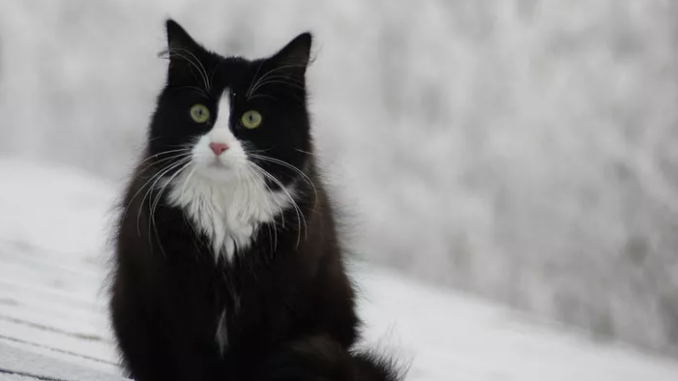
Black cats are well known for their association with Halloween, witchcraft, and bad luck. However, despite their reputation, they are unique felines that are thought to bring good luck in some countries, and they have a rich history dating back to the Middle Ages. Of course, other than the color of their fur, black cats are no different from any other feline; the difference is in how people think about them.
Here are 13 fascinating facts about black cats.
Contents
- The Background of Black Cats and Witches
- Black Cats Can Help Your Love Life
- Black Cats Have a Sailing History
- Black Cats Can Resist Disease
- Black Cats Can Change Color
- In Some Places, Black Cats Mean Good Luck
- Black Cats are Not a Breed
- Black is Genetically Dominant
- Most Black Cats Have Yellow Eyes
- They Can Have Short or Long Hair
- Black Cats Have Their Own Day
- Patterns Can Be Hidden Underneath Black Fur
- They’re Overlooked in Shelters
The Background of Black Cats and Witches
Black cats are quintessential Halloween icons—and the number one costume choice for both elementary-aged children and women in their freshman year of college, oddly enough—but do you know how they got such a spooky rap?
Beginning in the Middle Ages, black cats became associated with Satan, witches, and witchcraft; some people went so far as to believe that black cats were cohorts to witches or even witches who had taken on another form. This widespread superstition resulted in the horrific mass killing of black cats—and sometimes even their owners.
Aside from continuing to represent all things eerie, the fear of black cats still has some influence today. Many animal shelters won’t place black cats in homes during the month of October for fear of them being used sacrificially.
Black Cats Can Help Your Love Life
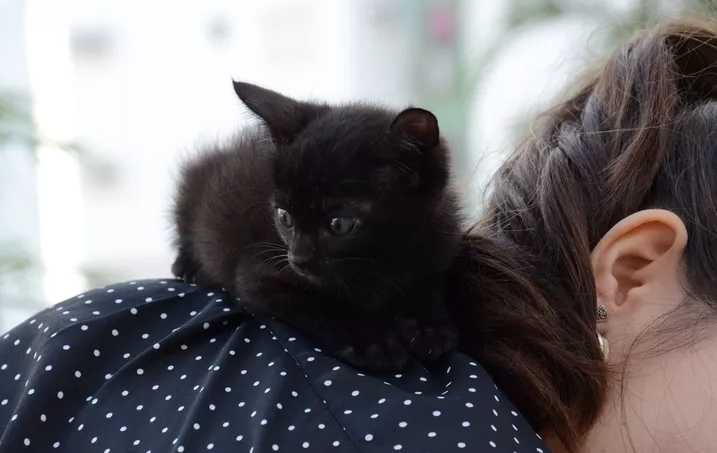
Forget the stereotypical depiction of the perpetually single cat lady. In some parts of the world, it’s believed that black cats can actually improve your love life.
In Japan, for example, single women who own black cats are believed to attract more suitors. In Great Britain’s English Midlands, a black cat is the ideal wedding gift; they’re believed to bring good luck and happiness to the bride.
Black Cats Have a Sailing History
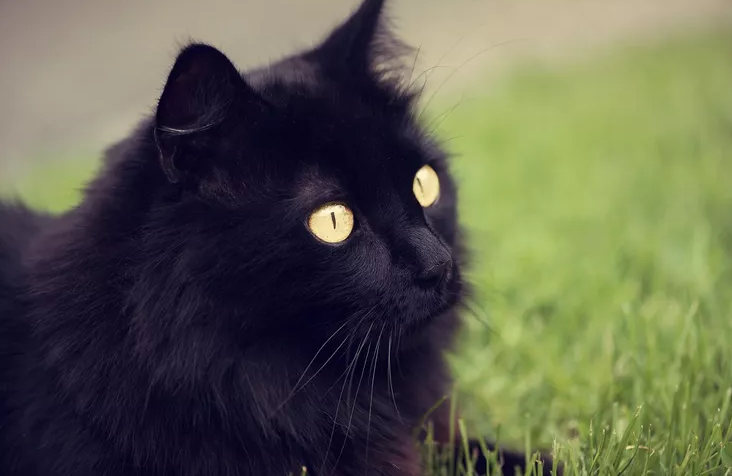
Ship’s cats were once a common thing; historically, sailors brought cats aboard ships to control rodents that could destroy food stores or damage the ship itself. But British sailors believed a black cat would bring the ship good luck and ensure a safe return home.
It was a little more complicated for pirates, though. They believed a black cat walking toward you was bad luck, a black cat walking away from you was good luck, and if a cat boarded the ship and then jumped off, the ship was going to sink.
Black Cats Can Resist Disease
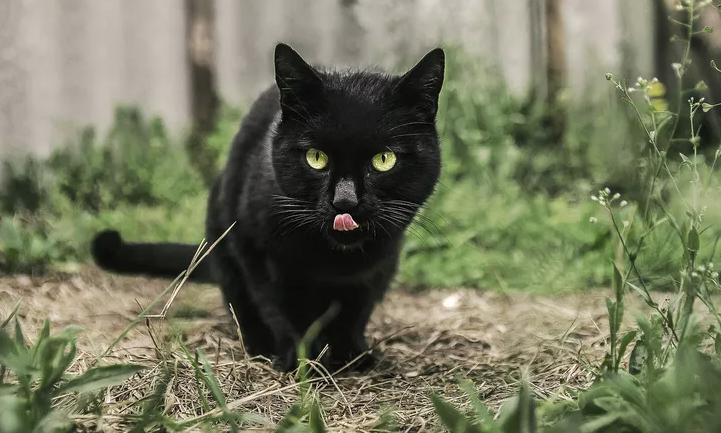
In the early 2000’s, researchers at the National Institutes of Health discovered that the genetic mutations that cause cats to have black coats may offer them some protection from diseases. In fact, the mutations affect the same genes that offer HIV resistance to some humans.
Since cats can experience many of the same health issues as we do—cancer, HIV, and cognitive dysfunction similar to Alzheimer’s, to name a few—they make perfect models for studying human disease. By figuring out how cats have evolved to resist diseases, researchers can, potentially, learn how to prevent disease in humans as well.
Black Cats Can Change Color
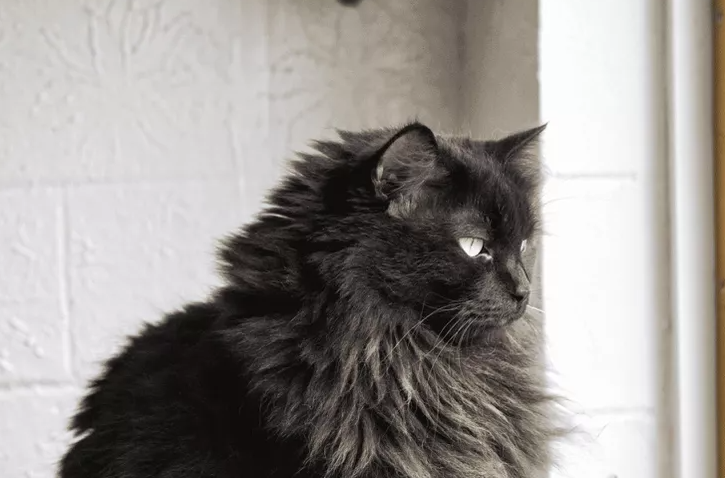
If your black cat loves to lounge in the sun—and what feline doesn’t?—the UV rays can break down the black pigment in the cat’s fur, changing it to a rusty color. The affected fur will remain discolored, but once shed, will be replaced by fresh black fur once again.
In Some Places, Black Cats Mean Good Luck
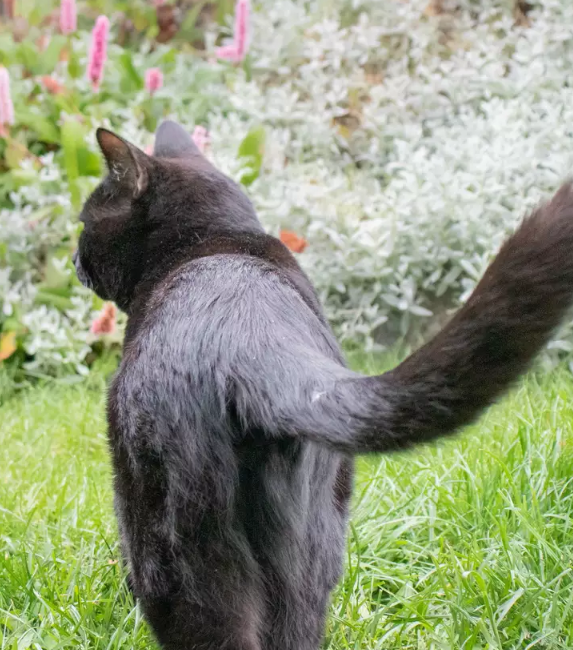
While black cats are mostly associated with bad luck in North America, that’s not the case around the world. In Scotland, tradition holds that a black cat on the doorstep means money is on the way. The French have a similar association between black cats and financial riches. In Germany, a black cat crossing your path means good luck, not bad, is on the way.
Black Cats are Not a Breed
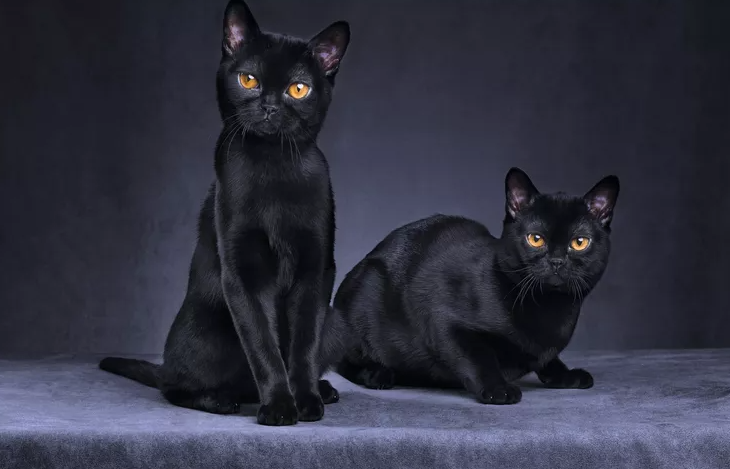
While many different breeds of cat include solid black as an accepted coat color, simply being a black cat is not a specific breed. However, one feline breed, the Bombay, was specifically bred to only have solid black fur, along with black foot pads and even black whiskers. These gorgeous kitties resemble little house panthers, but are friendly and affectionate domestic cats.
Black is Genetically Dominant
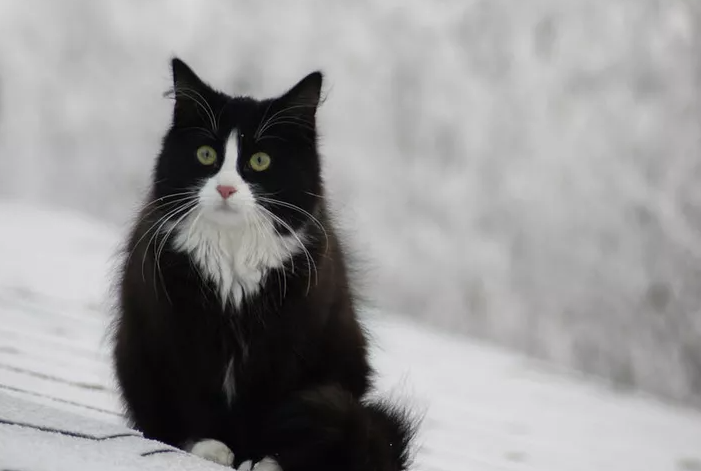
When it comes to feline coat color, black is genetically dominant, although most black cats are not solid black but have some patches of white, as well. Still, overall, black is the most common color of domesticated cats.
Most Black Cats Have Yellow Eyes
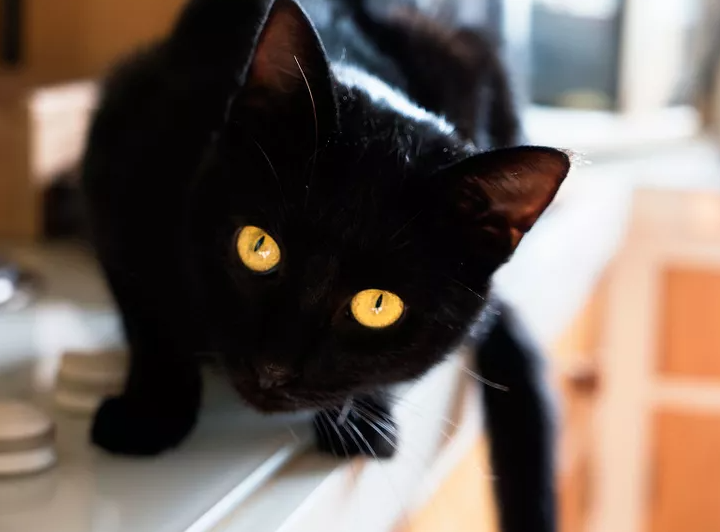
While feline eye color covers a wide range of hues, the vast majority of black cats have yellow or golden eyes. The striking contrast between black fur and yellow eyes adds even more mystique to these fabulous felines.
They Can Have Short or Long Hair
Because black cats are not one breed, they can have either long or short hair, depending on the individual cat breed. Bombays, Oriental shorthairs, American shorthairs, and others will have short black hair. Longhaired breeds like the Maine coon, Persian, and Siberian will have luxurious long locks. Black cats can even be hairless, like the Sphynx.
Black Cats Have Their Own Day
While every cat firmly believes that every day is devoted entirely to them, black cats have their very own specific day of the year: October 27, four days before Halloween. National Black Cat Day celebrates the black cat in hopes of dispelling myths about the breed’s association with bad luck.
Patterns Can Be Hidden Underneath Black Fur
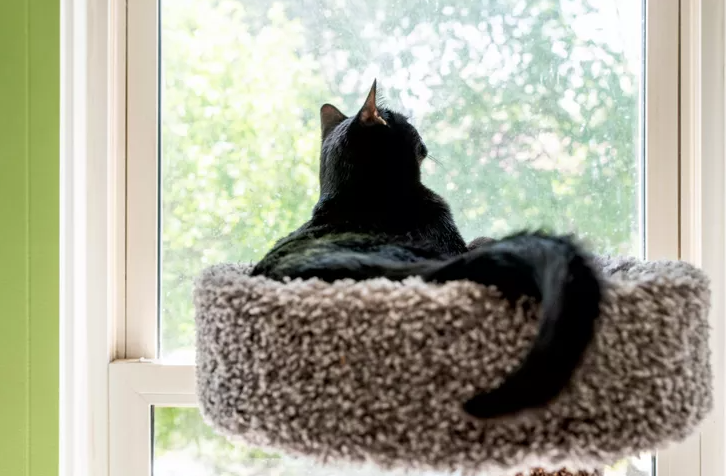
Look at a solid black cat in the sunlight, and you may very well see faint stripes within the fur. That’s because although black is genetically dominant as a fur color, the striped tabby pattern is genetically dominant as a fur pattern, and in cats with genes for both black fur and tabby patterning, the stripes can be “hidden” under the black coloring.
They’re Overlooked in Shelters
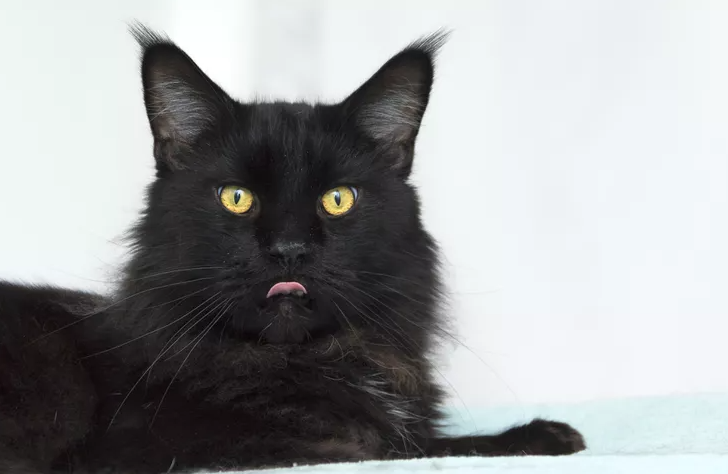
Unfortunately, black cats (and black dogs) are often overlooked in shelters. “Black Cat Bias” refers to the higher rates of surrenders to shelters, lower adoption rates, and high chance of euthanasia.1 It’s thought that these rates are due to the continued, but unfounded, superstitions around these cats.

